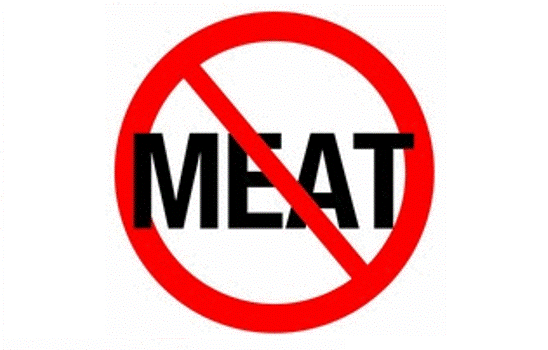10 Advantages and Disadvantages Of Being A Vegetarian

Advantages
1. Low blood pressure- Researchers said for some people, eating a vegetarian diet could be a good way to treat high blood pressure without medication. When patients with high blood pressure begin a vegetarian diet, many are able to eliminate the need for medication.
2. Lower risk of death- Not that there’s anything wrong with eating meat, but research does show that being a vegetarian has a lot of endless benefits which vegetarians tend to be healthier overall, and even live longer. According to a massive study, vegetarians live 20% longer. With none of the saturated fat and cholesterol that clogs arteries, vegetarians may be at a lower risk for chronic diseases overall.
3. It can benefit the evironment– If we really want to reduce the human impact on the environment, the simplest and cheapest thing anyone can do is to eat less meat. Behind most of the joints of beef or chicken on our plates is a phenomenally wasteful, land- and energy-hungry system of farming that devastates forests, pollutes oceans, rivers, seas and air, depends on oil and coal, and is significantly responsible for climate change.
4. Lower risk of diabetes- A vegetarian diet probably won’t cure your diabetes. But it may offer some benefits over a non vegetarian diet — such as reducing your risk of some diabetes-associated complications and possibly even making your body more responsive to insulin.
5. Less likely to be overweight- While being a vegetarian isn’t for everyone. If you’re trying to lose weight, being a vegetarian can be a good part of your program. Such as helping to better control your weight
Disadvantages
1. Health Issues- Potential interference with existing medical conditions. If you do not have a plan in place for getting the nutrients found in animal sources through vegetarian sources, you can come up short on protein, B12, calcium, vitamin D, and others
2. Eating Out Can Be a Challenge – Eating out as a vegetarian can sometimes be a real challenge. Most restaurant menus are geared towards meat eaters, and their vegetarian offerings are often limited to meat dishes with the absence of meat.
3. Vegetarian’s Meal Choices Can Seem Limited- New vegetarians are fearful that they won’t have enough options, and they simply don’t know where to start. It may seem like almost every dish contains meat, but this simply isn’t the case.
4. Increased risk of colorectal cancer- One would assume that heavy meat eaters would have a higher risk of developing colorectal cancer but a review published in the American Journal oF Clinical Nutrition of the aforementioned Oxford study reveals, “Within the study, the incidence of all cancers combined was lower among vegetarians than among meat eaters, but the incidence of colorectal cancer was higher in vegetarians than in meat eaters.”
5. Lower bone mineral density – Vegetarian diets can be healthy when they are well balanced and if a variety of foods is consumed. However, elimination of animal products from the diet (vegan diets) decreases the intake of some essential nutrients and may influence the bone metabolism. This is especially important in childhood and adolescence, when growth and bone turnover are most intensive. The aim of the study was to assess the effect of vegan diet on bone density (BMD) density and serum concentrations of bone metabolism markers.




